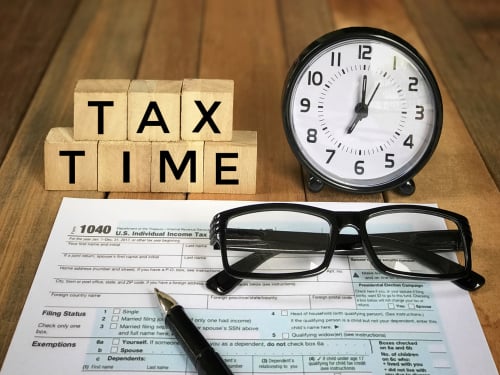As tax season approaches, the age-old question looms: should you tackle your taxes solo or enlist the help of a seasoned accountant? This decision is not just a matter of numbers; it intertwines with your financial knowledge, the complexity of your situation, and, lets be honest, how much time youre willing to dedicate to deciphering tax forms. For some, the prospect of managing their own taxes can seem empowering—after all, who knows your finances better than you do? Yet, for others, the intricacies of tax law might feel like an avalanche of confusion, evoking a sense of dread.
In this article, well explore three critical considerations that can help you navigate this pivotal choice, weighing the merits of self-preparation against professional assistance, ultimately guiding you toward the best approach for your unique financial landscape.
1. Complexity of Your Financial Situation
The complexity of your financial situation can significantly influence the decis ion of whether to tackle your taxes on your own or enlist the help of a professional accountant. If your income streams are varied—such as freelance work, rental properties, or investments—you may find yourself navigating a labyrinth of tax codes and deductions that can quickly spiral out of control.
ion of whether to tackle your taxes on your own or enlist the help of a professional accountant. If your income streams are varied—such as freelance work, rental properties, or investments—you may find yourself navigating a labyrinth of tax codes and deductions that can quickly spiral out of control.
In such cases, one miscalculation could lead not just to a headache during tax season, but to costly penalties later on. On the other hand, if your finances are straightforward, with a single job and typical deductions, self-filing may be manageable and even rewarding.
However, consider the potential benefits of personalized strategies that an accountant might offer, especially if your financial landscape is shifting or you anticipate major life changes. Ultimately, the intricacies of your financial life should guide your choice, balancing between DIY enthusiasm and the value of expert insight.
2. Time and Effort Required

When considering whether to tackle your taxes on your own or enlist the help of an accountant, the time and effort required can be a decisive factor. Preparing your own taxes demands a significant investment of time; you’ll need to familiarize yourself with tax codes, gather all necessary documentation, and meticulously fill out forms, which can be daunting and labyrinthine.
For the average person, this process could stretch over several days, especially in the face of unexpected complexities like investments, deductions, or changes in tax laws. Conversely, an accountant brings not only expertise but also efficiency to the table, potentially trimming hours of research and paperwork to a fraction of the time.
However, hiring a professional does require financial resources upfront, so weighing the time saved against the monetary cost is essential. Ultimately, the choice hinges on how much time you can realistically devote to this task and whether you prefer the peace of mind that comes with professional guidance or the challenge of navigating the intricate world of taxes on your own.
3. Cost Comparison

When weighing the cost of doing your taxes yourself versus hiring an accountant, its essential to consider both the financial outlay and the potential return on investment. DIY tax software may appear appealing at first glance, boasting low upfront costs, but dont forget the countless hours you may spend deciphering tax codes and navigating software intricacies.
For the DIYer, these hours could translate into lost income or missed deductions, ultimately eroding any supposed savings. On the flip side, hiring an accountant involves a higher immediate cost, but these professionals often uncover opportunities and credits that an untrained eye might overlook, potentially saving you significantly in taxes owed.
Thus, the decision is not just about the money you shell out; it’s also about the value of your time and the quality of financial guidance you can access. Balancing these factors can lead to a clearer path forward, whether you choose to brave the tax landscape solo or enlist expert assistance.
Conclusion
Deciding whether to tackle your taxes yourself or enlist the help of a professional accountant involves careful consideration of various factors, including your financial complexity, time constraints, and comfort level with tax regulations. For those with straightforward finances, DIY tax software can often suffice, saving both time and money.
However, if your situation is more complicated or if you find tax laws overwhelming, hiring an accountant, such as one from Accountancy Capital, could provide peace of mind and potentially maximize your tax benefits. Ultimately, weighing these aspects will help you make an informed decision that best meets your financial needs and goals.


